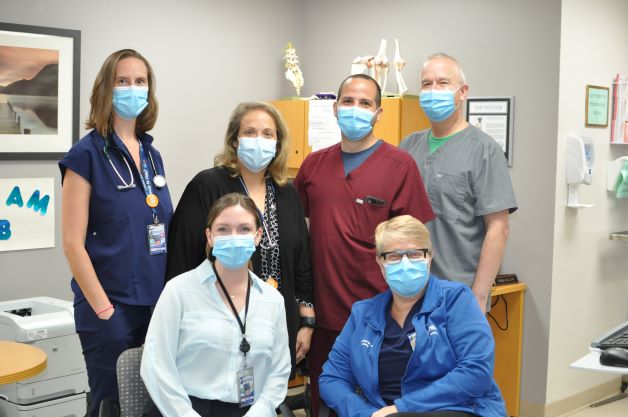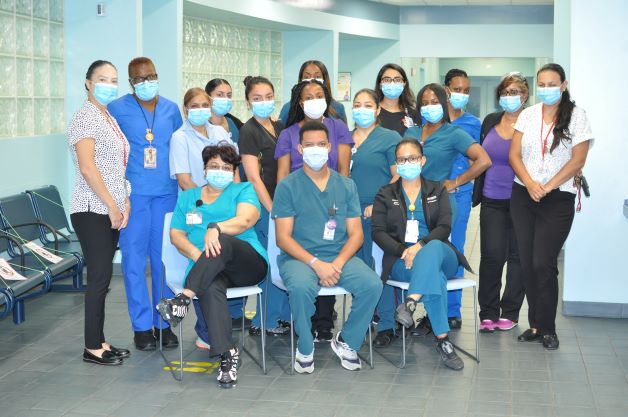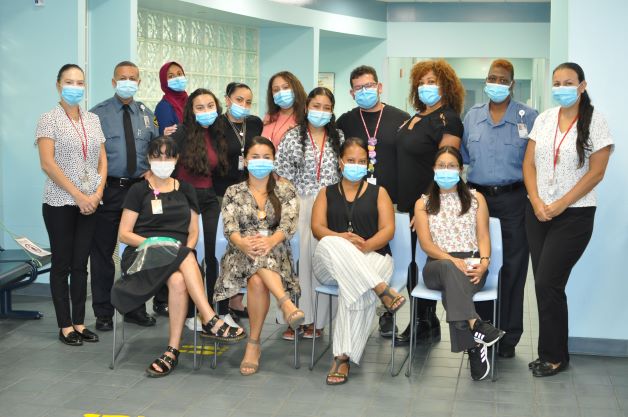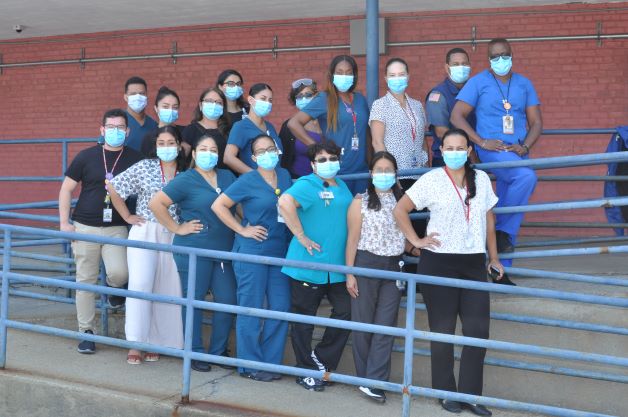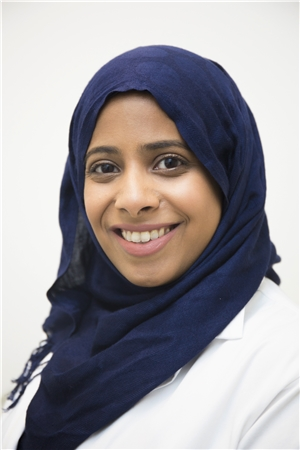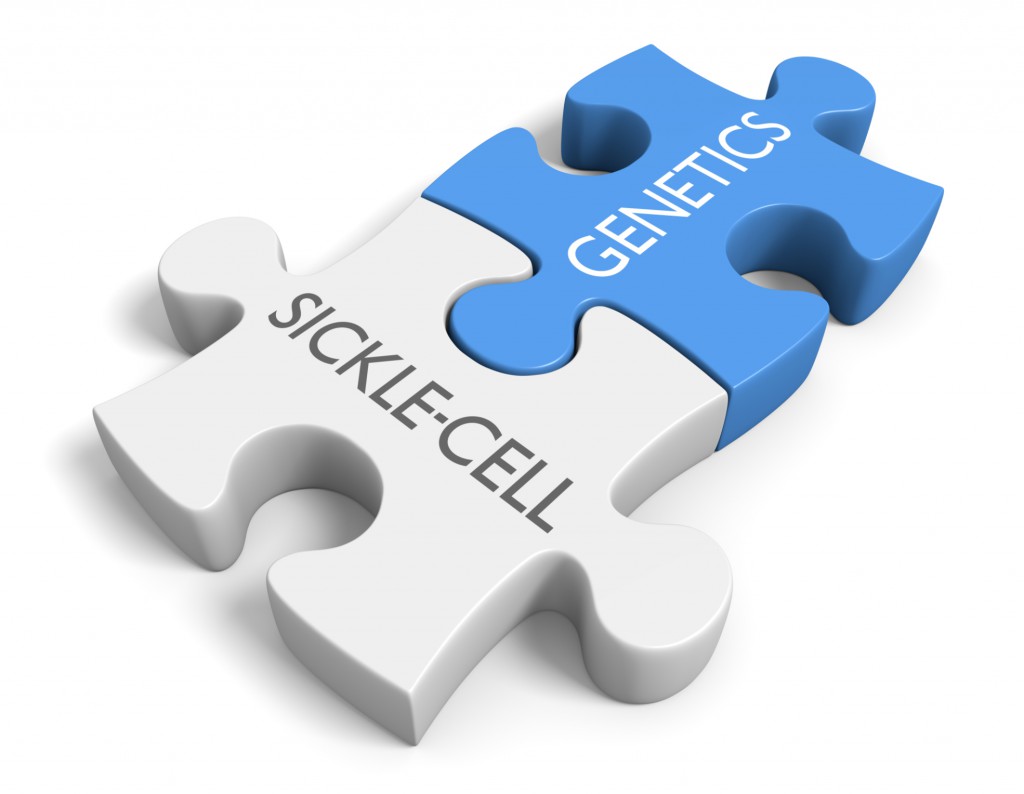
This month we are proud to shine our Employee Spotlight on Pearlette Edionwe, RN, BSN, MSN, who has been working at Jamaica Hospital Medical Center for 14 years and currently serves as Assistant Head Nurse on 3 North.
Pearlette is a native of Trelawny, Jamaica, West Indies. She attended Bohemia All Age Elementary School and Christiana Secondary High School before coming to the United States at the age of 25. Her first job was as a babysitter on Long Island. Following that she worked for the Cerebral Palsy Association of New York while studying to become an LPN. She received her Associate’s Degree in Nursing at Eastwick College of New Jersey and then obtained her Bachelor of Science degree in Nursing at Grand Canyon University in Phoenix Arizona. While working at Jamaica Hospital as the Assistant Head Nurse on 3 North, she obtained her Masters Of Science degree in Nursing with an emphasis on Leadership in Healthcare Systems.
Pearlette currently lives in Freeport, Long Island. She has three children of whom she is very proud of. In her free time she enjoys reading, crocheting, gardening, watching track and field events, basketball and listening to gospel music. She also enjoys spending time with her family and friends. Pearlette always makes time for her Maltipoo named Theodore Cornelius Edionwe. Her favorite places to travel to are Paris, and the Island of Jamaica. Pearlette tells us that her favorite foods are those that are home cooked.
Pearlette’s calling is taking care of patients who she strives to give the best possible care. She enjoys working with the team on her unit to accomplish this goal. She is proud to be a part of the Jamaica Hospital family because they are supportive and kind. We are proud to have her as a member of our team and look forward to her working with us for many more years.
All content of this newsletter is intended for general information purposes only and is not intended or implied to be a substitute for professional medical advice, diagnosis or treatment. Please consult a medical professional before adopting any of the suggestions on this page. You must never disregard professional medical advice or delay seeking medical treatment based upon any content of this newsletter. PROMPTLY CONSULT YOUR PHYSICIAN OR CALL 911 IF YOU BELIEVE YOU HAVE A MEDICAL EMERGENCY.


